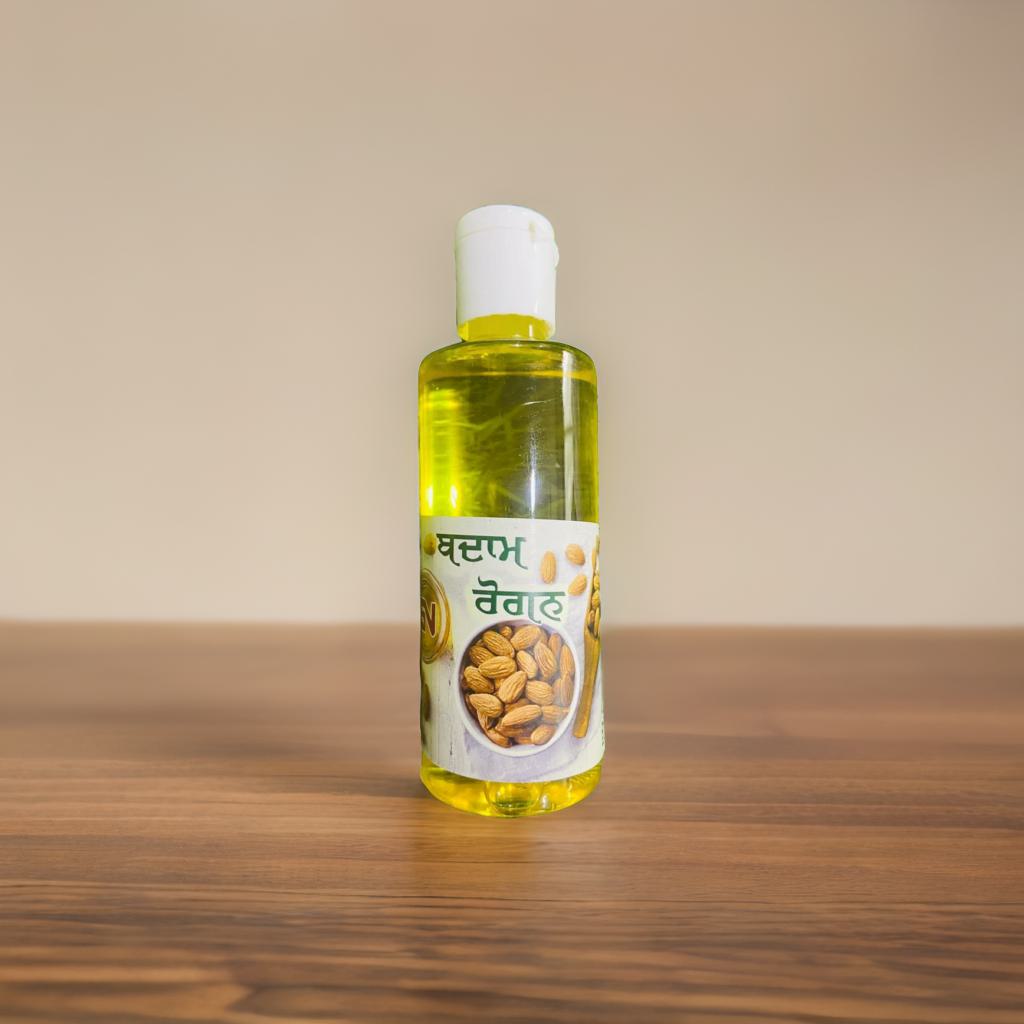The oils you keep in your pantry are indispensable for a variety of culinary and beauty applications. Among them, almond oil stands out as a powerhouse ingredient with numerous potential benefits. Extracted from almond nuts, this oil is celebrated for its rich nutritional content and versatile uses in cooking, skincare, and hair care. In this post, we explore how almond oil is made, its health benefits, and tips for incorporating it into your daily routine – with a brief look at complementary alternatives like mustard and coconut oils.
What Is Almond Oil?
Almond oil is extracted from almonds and comes in two varieties: sweet almond oil and bitter almond oil.
- Sweet almond oil is the type used for cooking, skincare, and hair care.
- Bitter almond oil is processed to remove natural toxins and is primarily used in non-edible applications such as soap making and massage therapy.
Extraction and Processing
There are two common methods of extracting almond oil:
- Expeller-Pressed: Almonds are ground and gently heated with modern steel presses at room temperature. This method preserves flavor, quality, and nutrients, making it the preferred choice for health-conscious consumers.
- Chemical Extraction: Although it yields a higher volume, this method uses heat and chemicals, which can compromise the oil’s nutritional value and flavor.
After extraction, some oils undergo further processing (refining) to create a tasteless, higher smoke point product. However, unrefined or virgin almond oil retains more of its natural nutrients and flavor, making it ideal for both culinary and topical uses.
Nutritional Profile and Health Benefits
Almond oil is a potent source of antioxidants, vitamins, and minerals such as vitamin E, magnesium, phosphorus, and copper. These nutrients contribute to its impressive range of benefits:
For Skin Health
- Antioxidant Protection: Rich in vitamin E, almond oil helps neutralize free radicals, protecting your skin from premature aging and environmental stress.
- Moisturization: Its emollient properties help lock in moisture, soften skin, and soothe conditions like eczema and psoriasis.
- Scar and Stretch Mark Reduction: Regular use may improve skin texture and reduce the appearance of scars and stretch marks.
For Hair Health
- Nourishment: Almond oil is loaded with fatty acids and biotin, supporting hair strength, reducing frizz, and enhancing shine.
- Scalp Treatment: Its antibacterial properties help maintain a healthy scalp, reduce dandruff, and potentially promote hair growth.
- Repair: It can be used as a pre-shampoo treatment to help repair damage and smooth split ends.
For Cooking
- Heart Health: The high content of monounsaturated fats in almond oil can help lower LDL cholesterol and raise HDL cholesterol.
- Flavor Enhancer: With its mild, nutty flavor, almond oil is perfect for salad dressings, low-heat baking, or as a finishing oil on dishes.
- Nutrient Boost: When used in cooking, it adds essential nutrients without overpowering other flavors.
How to Use Almond Oil
Culinary:
- Drizzle over salads or mix into dressings.
- Use as a substitute for butter in low-heat recipes to preserve its nutrient profile.
- Add to smoothies for an extra dose of healthy fats.
Topical:
- Apply directly to the skin as a moisturizer or mix with essential oils for a DIY massage oil.
- Use as a hair treatment by massaging into the scalp or applying to hair ends before drying.
- Create homemade scrubs or serums for added nourishment.
Storage Tips:
Keep it in a cool, dark place to prevent rancidity. While it can be stored at room temperature, cooler conditions extend its shelf life. Always check the “use by” date, and if your kitchen is warm, consider refrigeration.
A Note on Mustard and Coconut Oils
While almond oil offers remarkable benefits, diversifying your oil selection can enhance both your diet and beauty regimen. Mustard oil brings a robust, distinctive flavor along with anti-inflammatory properties, making it ideal for certain traditional dishes and topical applications. Coconut oil, celebrated for its unique medium-chain triglycerides, is popular for its versatile culinary uses and effective moisturizing properties. Combining these oils judiciously can offer a well-rounded nutritional and therapeutic profile.
Conclusion
Almond oil is more than just a pantry staple—it’s a versatile elixir that can improve your skin, hair, and overall health when used appropriately. Whether you choose to incorporate it into your cooking, use it as a natural skincare remedy, or add it to your hair care routine, the benefits are undeniable. Consider exploring complementary oils like mustard and coconut oil to further enrich your wellness journey. For high-quality this oil and other artisan oils, visit our website and discover products designed to support your healthy lifestyle.

